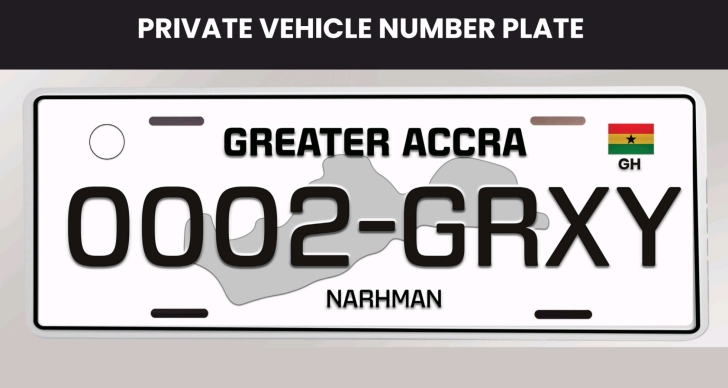Ghana’s Driver and Vehicle Licensing Authority (DVLA) will introduce new RFID-enabled number plates starting April 1, 2026, in a nationwide move to digitise vehicle identification and strengthen road management systems.
How it works
The new plates will use Radio Frequency Identification (RFID) technology, allowing authorities to digitally scan and track vehicles for electronic tolling, speed monitoring, and traffic law enforcement.
The rollout:
- January 1, 2026: New vehicles will be issued RFID plates at registration.
- April 1, 2026: Re-registration begins for all existing vehicles.
What’s changing
DVLA Chief Executive Julius Neequaye Kotey said the new format will replace the current year-based numbering with zonal codes that identify where the vehicle was registered.
“Each plate will indicate the region and zone — for example, a car registered in Adenta, Greater Accra, will end with the code ‘AD’, replacing the year indicator like ‘25’ for 2025,” Kotey explained.
Why it matters
The reform aims to:
- Eliminate the misuse of “DV” (Defective Vehicle) plates.
- Introduce new DV and Temporary (TMP) plates with a special sticker system.
- Enhance vehicle tracking, road safety, and law enforcement integration within Ghana’s digital transport infrastructure.
Between the lines
The announcement builds on DVLA’s earlier decision to abolish registration years on number plates starting January 2026 — part of a broader digital transformation in Ghana’s transport sector.










